Fleurs du Mal Magazine


Or see the index
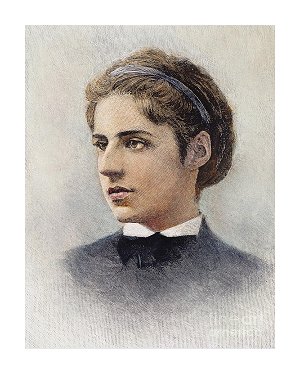
Emma Lazarus
(1849 – 1887)
Longing
Look westward o’er the steaming rain-washed slopes,
Now satisfied with sunshine, and behold
Those lustrous clouds, as glorious as our hopes,
Softened with feathery fleece of downy gold,
In all fantastic, huddled shapes uprolled,
Floating like dreams, and melting silently,
In the blue upper regions of pure sky.
The eye is filled with beauty, and the heart
Rejoiced with sense of life and peace renewed;
And yet at such an hour as this, upstart
Vague myriad longing, restless, unsubdued,
And causeless tears from melancholy mood,
Strange discontent with earth’s and nature’s best,
Desires and yearnings that may find no rest.
Emma Lazarus poetry
fleursdumal.nl magazine
More in: Archive K-L, Lazarus, Emma
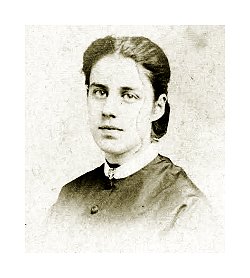
Emma Lazarus
(1849 – 1887)
HEROES
In rich Virginian woods,
The scarlet creeper reddens over graves,
Among the solemn trees enlooped with vines;
Heroic spirits haunt the solitudes,–
The noble souls of half a million braves,
Amid the murmurous pines.
Ah! who is left behind,
Earnest and eloquent, sincere and strong,
To consecrate their memories with words
Not all unmeet? with fitting dirge and song
To chant a requiem purer than the wind,
And sweeter than the birds?
Here, though all seems at peace,
The placid, measureless sky serenely fair,
The laughter of the breeze among the leaves,
The bars of sunlight slanting through the trees,
The reckless wild-flowers blooming everywhere,
The grasses’ delicate sheaves,–
Nathless each breeze that blows,
Each tree that trembles to its leafy head
With nervous life, revives within our mind,
Tender as flowers of May, the thoughts of those
Who lie beneath the living beauty, dead,–
Beneath the sunshine, blind.
For brave dead soldiers, these:
Blessings and tears of aching thankfulness,
Soft flowers for the graves in wreaths enwove,
The odorous lilac of dear memories,
The heroic blossoms of the wilderness,
And the rich rose of love.
But who has sung their praise,
Not less illustrious, who are living yet?
Armies of heroes, satisfied to pass
Calmly, serenely from the whole world’s gaze,
And cheerfully accept, without regret,
Their old life as it was,
With all its petty pain,
Its irritating littleness and care;
They who have scaled the mountain, with content
Sublime, descend to live upon the plain;
Steadfast as though they breathed the mountain-air
Still, wheresoe’er they went.
They who were brave to act,
And rich enough their action to forget;
Who, having filled their day with chivalry,
Withdraw and keep their simpleness intact,
And all unconscious add more lustre yet
Unto their victory.
On the broad Western plains
Their patriarchal life they live anew;
Hunters as mighty as the men of old,
Or harvesting the plenteous, yellow grains,
Gathering ripe vintage of dusk bunches blue,
Or working mines of gold;
Or toiling in the town,
Armed against hindrance, weariness, defeat,
With dauntless purpose not to serve or yield,
And calm, defiant, they struggle on,
As sturdy and as valiant in the street,
As in the camp and field.
And those condemned to live,
Maimed, helpless, lingering still through suffering years,
May they not envy now the restful sleep
Of the dear fellow-martyrs they survive?
Not o’er the dead, but over these, your tears,
O brothers, ye may weep!
New England fields I see,
The lovely, cultured landscape, waving grain,
Wide haughty rivers, and pale, English skies.
And lo! a farmer ploughing busily,
Who lifts a swart face, looks upon the plain,–
I see, in his frank eyes,
The hero’s soul appear.
Thus in the common fields and streets they stand;
The light that on the past and distant gleams,
They cast upon the present and the near,
With antique virtues from some mystic land,
Of knightly deeds and dreams.
Emma Lazarus poetry
fleursdumal.nl magazine
More in: Archive K-L, Lazarus, Emma

Emma Lazarus
(1849 – 1887)
Youth
Sweet empty sky of June without a stain,
Faint, gray-blue dewy mists on far-off hills,
Warm, yellow sunlight flooding mead and plain,
That each dark copse and hollow overfills;
The rippling laugh of unseen, rain-fed rills,
Weeds delicate-flowered, white and pink and gold,
A murmur and a singing manifold.
The gray, austere old earth renews her youth
With dew-lines, sunshine, gossamer, and haze.
How still she lies and dreams, and veils the truth,
While all is fresh as in the early days!
What simple things be these the soul to raise
To bounding joy, and make young pulses beat,
With nameless pleasure finding life so sweet.
On such a golden morning forth there floats,
Between the soft earth and the softer sky,
In the warm air adust with glistening motes,
The mystic winged and flickering butterfly,
A human soul, that hovers giddily
Among the gardens of earth’s paradise,
Nor dreams of fairer fields or loftier skies.
Emma Lazarus poetry
fleursdumal.nl magazine
More in: Archive K-L, Lazarus, Emma
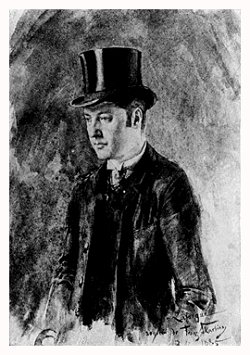
Jules Laforgue
(1860-1887)
Hypertrophie
Astres lointains des soirs, musiques infinies,
Ce Coeur universel ruisselant de douceur
Est le coeur de la Terre et de ses insomnies.
En un pantoum sans fin, magique et guérisseur
Bercez la Terre, votre soeur.
Le doux sang de l’Hostie a filtré dans mes moelles,
J’asperge les couchants de tragiques rougeurs,
Je palpite d’exil dans le coeur des étoiles,
Mon spleen fouette les grands nuages voyageurs.
Je beugle dans les vents rageurs.
Aimez-moi. Bercez-moi. Le cœur de l’oeuvre immense
Vers qui l’Océan noir pleurait, c’est moi qui l’ai.
Je suis le coeur de tout, et je saigne en démence
Et déborde d’amour par l’azur constellé,
Enfin ! que tout soit consolé.
Pauvre petit coeur sur la main,
La vie n’est pas folle pour nous
De sourires, ni de festins,
Ni de fêtes : et, de gros sous ?
Elle ne nous a pas gâtés
Et ne nous fait pas bon visage
Comme on fait à ces Enfants sages
Que nous sommes, en vérité.
Si sages nous ! Et, si peu fière
Notre façon d’être avec elle ;
Francs aussi, comme la lumière
Nous voudrions la trouver belle
Autant que d’Autres – pourtant quels ?
Et pieux, charger ses autels
Des plus belles fleurs du parterre
Et des meilleurs fruits de la terre.
Mais d’ailleurs, nous ne lui devrons
Que du respect, tout juste assez,
Qu’il faut professer envers ces
Empêcheurs de danser en rond.
Jules Laforgue poetry
fleursdumal.nl magazine
More in: - Archive Tombeau de la jeunesse, Archive K-L, CLASSIC POETRY

Antoine de Kom wint VSB Poëzieprijs 2014
Antoine de Kom is de winnaar van de VSB Poëzieprijs 2014. De dichter krijgt de prijs voor de beste Nederlandstalige dichtbundel van het afgelopen jaar voor zijn bundel ‘Ritmisch zonder string’.
De Kom ontving op 29 januari tijdens een feestelijke avond in het Stadhuis van Rotterdam de prijs uit handen van burgemeester en juryvoorzitter Ahmed Aboutaleb. Aan de prijs is een geldbedrag van 25.000 euro verbonden en een glaskunstwerk van kunstenares Maria Roosen. Naast De Kom maakten ook de dichters Maria Barnas, F. van Dixhoorn, Micha Hamel en Miriam Vanhee kans op de prijs.
De jury was unaniem in het aanwijzen van Antoine de Kom als winnaar. “Door een zintuiglijke en krachtige beeldtaal, vermengd met slang en folklore, worden in ‘Ritmisch zonder string’ vele werelden welhaast tastbaar.” Lovend spreekt de jury over De Koms diep verankerde engagement waarin gelukkig ook plaats is voor spot waar het de rol van de dichter betreft.
De jury bestaande uit Saskia de Jong, Hilde Keteleer, Joep Leerssen, Jan Rock en Ahmed Aboutaleb, nomineerden in november vijf van de in totaal 115 bundels die allen tussen 1 september 2012 en 31 augustus 2013 verschenen.
Antoine de Kom,
Ritmisch zonder string
Uitgeverij Querido
ISBN 9789021447339
fleursdumal.nl magazine
More in: Archive K-L, Art & Literature News, Literary Events
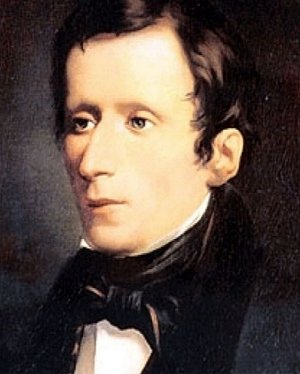
Giacomo Leopardi
(1798 – 1837)
Infinite
These solitary hills have always been dear to me.
Seated here, this sweet hedge, which blocks the distant horizon opening inner silences and interminable distances.
I plunge in thought to where my heart, frightened, pulls back.
Like the wind which I hear tossing the trembling plants which surround me, a voice from the inner depths of spirit shakes the certitudes of thought.
Eternity breaks through time, past and present intermingle in her image.
In the inner shadows I lose myself,
drowning in the sea-depths of timeless love.
Giacomo Leopardi poetry
fleursdumal.nl magazine
More in: Archive K-L, Leopardi, Giacomo
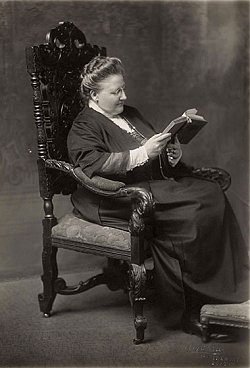
Amy Lowell
(1874–1925)
To a Friend
I ask but one thing of you, only one,
That always you will be my dream of you;
That never shall I wake to find untrue
All this I have believed and rested on,
Forever vanished, like a vision gone
Out into the night. Alas, how few
There are who strike in us a chord we knew
Existed, but so seldom heard its tone
We tremble at the half-forgotten sound.
The world is full of rude awakenings
And heaven-born castles shattered to the ground,
Yet still our human longing vainly clings
To a belief in beauty through all wrongs.
O stay your hand, and leave my heart its songs!
Amy Lowell poetry
fleursdumal.nl magazine
More in: Archive K-L, Archive K-L, CLASSIC POETRY, Lowell, Amy

Emma Lazarus
(1849-1887)
Dreams
A dream of lilies: all the blooming earth,
A garden full of fairies and of flowers;
Its only music the glad cry of mirth,
While the warm sun weaves golden-tissued hours;
Hope a bright angel, beautiful and true
As Truth herself, and life a lovely toy,
Which ne’er will weary us, ne’er break, a new
Eternal source of pleasure and of joy.
A dream of roses: vision of Loves tree,
Of beauty and of madness, and as bright
As naught on earth save only dreams can be,
Made fair and odorous with flower and light;
A dream that Love is strong to outlast Time,
That hearts are stronger than forgetfulness,
The slippery sand than changeful waves that climb,
The wind-blown foam than mighty waters’ stress.
A dream of laurels: after much is gone,
Much buried, much lamented, much forgot,
With what remains to do and what is done,
With what yet is, and what, alas! is not,
Man dreams a dream of laurel and of bays,
A dream of crowns and guerdons and rewards,
Wherein sounds sweet the hollow voice of praise,
And bright appears the wreath that it awards.
A dream of poppies, sad and true as Truth,-
That all these dreams were dreams of vanity;
And full of bitter penitence and ruth,
In his last dream, man deems ’twere good to die;
And weeping o’er the visions vain of yore,
In the sad vigils he doth nightly keep,
He dreams it may be good to dream no more,
And life has nothing like Death’s dreamless sleep.
Emma Lazarus poetry
fleursdumal.nl magazine
More in: Archive K-L, Lazarus, Emma
![]()
Niels Landstra
Mishandelde straathond
Zijn hart een mishandelde straathond
Kruipt verstoten over straat, gekleineerd
door haar scheldkanonnades, gekromd
en stijf zijn foetushouding, uitgeteld
zinkend in kieren kinderkopjes
een kloppende placenta die met zich
meesleurt de versmelting, vruchtbodems
de oerbron. Het aanzwellende dwaallicht
lonkt naar de arm schouwende straathond
die naar zijn volgzame joyeuze hart
luisterde toen het wegrennen begon
samen naar de jonge horizon, zacht
in haar armen vlijen, de vagebond
die zij lustig ontving, met een glans in
haar blik die haar vruchtbare weerzin
verborg zolang haar boezem het verbond
verdroeg hem niet op straat te werpen
met zijn turen en huid en kreunen zacht
Niels Landstra poetry
fleursdumal.nl magazine
More in: Archive K-L, Landstra, Niels, MUSEUM OF NATURAL HISTORY - department of ravens & crows, birds of prey, riding a zebra, spring, summer, autumn, winter
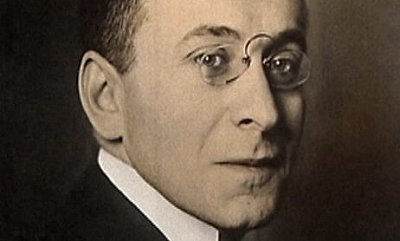
Karl Kraus
(1874-1936)
Das arme Leben
Tust du nicht unrecht diesen Freuden?
Verbergen sie nicht Gram und Qual?
Verzittert nicht das tiefste Leiden
in einem Tränenbach-Kanal?
Hat doch der Glaube sie zum Narren,
daß jeder Schritt ins Freie drängt,
wenn sie in diese Enge starren,
die sich nur immer mehr verengt.
Bange macht jedem jede Stunde,
die von ihm abnimmt Stück für Stück,
und jeder zieht mit einer Wunde
in sein Verhängnis sich zurück.
Wer fühlt das Leben nicht vertropfen
und wie es in den Tod verfällt!
Sie hören ihre Herzen klopfen,
und eben darum lärmt die Welt.
Jeglicher Blick verkürzt das Dauern
von der bemessnen Wartezeit,
und jeder Atemzug ist Schauern,
und jeder Gang ein Grabgeleit.
Wenn sie verrucht den andern nahmen
den zugeteilten Henkerschmaus,
es hat zum vorbestimmten Amen
der vollste Magen nichts voraus.
Heben vergebens ihre Hände,
eh sie vereint das letzte Band.
Sie reichen alle doch am Ende
einander ihre Totenhand.
Karl Kraus poetry
fleursdumal.nl magazine
More in: Archive K-L, Kraus, Karl
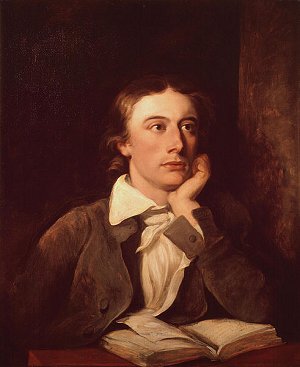
John Keats
(1795 – 1821)
When I Have Fears
When I have fears that I may cease to be
Before my pen has gleaned my teeming brain,
Before high-piled books, in charactery,
Hold like rich garners the full ripened grain;
When I behold, upon the night’s starred face,
Huge cloudy symbols of a high romance,
And think that I may never live to trace
Their shadows, with the magic hand of chance;
And when I feel, fair creature of an hour,
That I shall never look upon thee more,
Never have relish in the fairy power
Of unreflecting love; – then on the shore
Of the wide world I stand alone, and think
Till love and fame to nothingness do sink.
John Keats poetry
fleursdumal.nl magazine
More in: Archive K-L, John Keats, Keats, John

Albertine Kehrer
(1826-1852)
Verloren vriendschap
Weer een schoone droom vervlogen,
Ligt voor de aard te schoon, helaas!
Weder voor een zoete logen
Bittre waarheid in de plaats!
Bloesems mijner vreugd bedorven,
Ach! een ideaal gestorven,
Neen, meêdoogenloos vermoord
Met een enkel, vlijmend woord!
Toch, toch dank ik uwe opregtheid
Die dat woord mij deed verstaan,
En geen ander mijn gehechtheid
Zulk een wonde heeft doen slaan!
De eenzame avond, mijn vertrouwde,
– Vaak getuige van mijn strijd –
Die ook nu mijn smart aanschouwde,
Weet, dat ik u niets verwijt!
God, die aller menschen harten,
Als zijn waterbeken leidt;
Die zijn kindren onder smarten
Opvoedt tot zijn heerlijkheid,
Heeft dat leed mij toegewogen,
Heeft dien beker toebereid.
‘k Hief mijn hart, mijn schreijende oogen
‘k Zond mijn zuchten en gebeên,
Naar mijn Vader vol meêdoogen,
Naar zijn open hemel heen,
Naar mijn Vader in den hoogen
Die geen lust schept in ‘t geween,
En uit wellust nimmer plaagde…
‘k Bad, en ‘t licht zijns troostes daagde
Scheemrend door mijn tranen heen:
‘Vader! dat het vuur dier smarte
Loutrend door mijn ziele ga!
Wil haar heilgen aan mijn harte
Door de kracht van uw genâ!
Leer mij niets van de aard te vragen;
U beminnen, U alleen;
Trek mijn hart naar boven heen,
Zij ‘t ook onder leed en plagen…
Gij geeft balsem bij uw slagen!’
Albertine Kehrer poetry
fleursdumal.nl magazine
More in: Albertine Kehrer, Archive K-L, Kehrer, Albertine
Thank you for reading Fleurs du Mal - magazine for art & literature